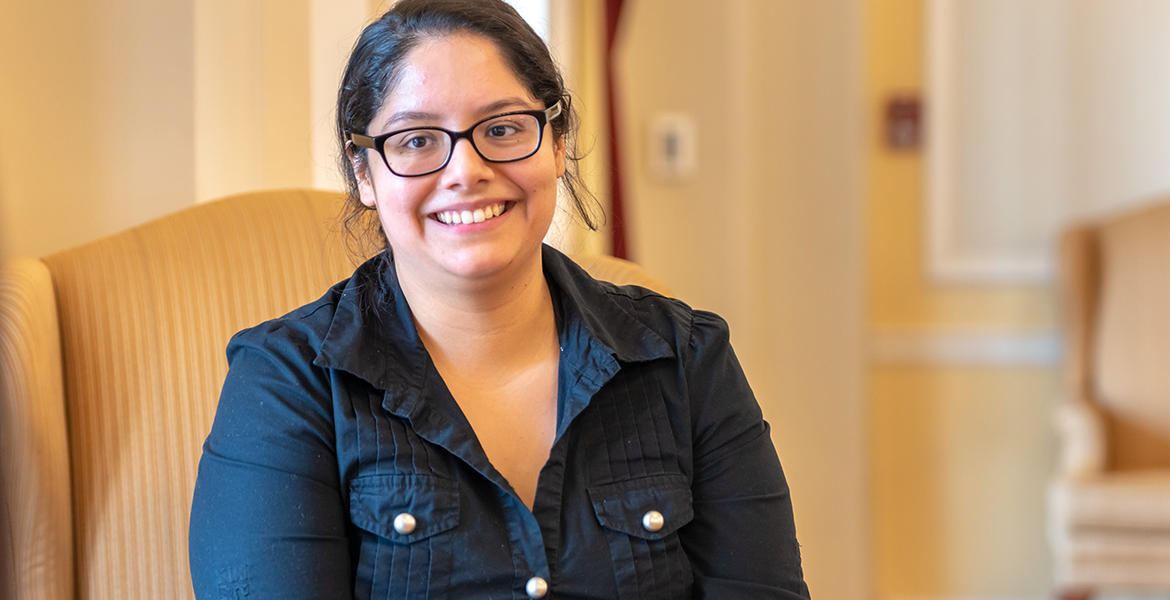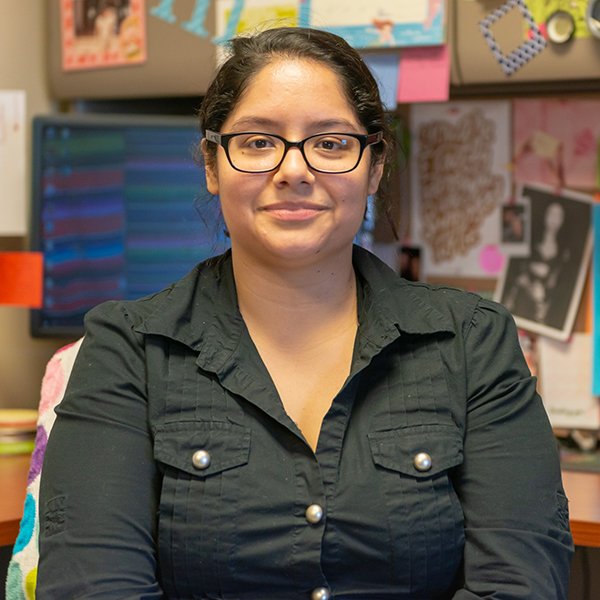
Doctoral student passionate about disaster relief
Wednesday, March 20, 2019
Maggie Chamberlain, a Ph.D. student and Oklahoma State University’s first recipient of the William Averette Anderson Fund Fellowship, plans to dedicate her career to her passion for environmental disaster relief through working at a nonprofit or governmental organization that directly benefits communities impacted by disasters.
The native of Austin, Texas, received her bachelor’s and master’s degree in sociology from Texas State University in San Marcos. She chose this path due to her interest in the environmental interaction between social and natural settings.
In her doctoral program, Chamberlain focuses on understanding the impact of natural and technological disasters on different populations. She operates from the environmental justice frame and focuses her understanding of conditions that “disproportionally and maybe inappropriately impact different parts of our population.”
Chamberlain gushes about her colleagues and mentors.
“I love my colleagues,” she said. “They are all very supportive and really kind but also do a good job at challenging each other at seminars. … My adviser, Dr. Liesel Ritchie, has done incredible work in the areas I’m interested in and kept me informed of opportunities and resources that are available.”
Ritchie introduced Chamberlain to the fellowship after learning about her interest in helping disaster-impacted communities.
"Maggie’s compassion and drive lend themselves not only to her selection as an Anderson Fund Fellow, but also to what I see as an incredibly promising career in the field of environmental justice—particularly with respect to community resilience and hazards and disasters,” Ritchie said. “She has a sense of civic and personal responsibility that is among the strongest I’ve seen in a student."

“I arrived at OSU right when Hurricane Harvey hit,” Chamberlain said. “Seeing that unfold on top of my (interest in) environmental justice issues really sparked my interest.”
The Bill Anderson Fund Fellowship aims to facilitate successful graduate-school experiences for underrepresented groups.
“Hazards and disasters disproportionally and negatively affect vulnerable populations: community of color, the poor and so forth,” Chamberlain explained. “Members of those communities are often underrepresented in hazard- and disaster-research fields, which create some challenges and some really basic understandings like language or culture. … The Anderson Fellowship seeks to diversify the field to produce more meaningful and successful research.”
Bill Anderson Fund Fellows attend workshops throughout their cohort year to gain firsthand experience in hazard and disaster research within the desired field.
“Though I don’t have any direct experience going into the field, the workshops have helped me practice basic cultural competence and letting the communities take the lead,” Chamberlain said. “They know their problems better than us.”
The most recent workshop took place at the University of Delaware.
“I went to a hazard-mapping (event) with a community in Delaware that has seen some issues with flooding,” Chamberlain said. “They are a historically black community, and they have high rates of poverty as well. With their industrial history, they also have pollution problems.”
Chamberlain and the other Bill Anderson Fellows facilitated a dialogue with the residents to get more in-depth information than they could from simply reviewing data.
“We got a way better picture of what they thought their own challenges were,” Chamberlain said. “We can take it back to the research center and show them, ‘Hey, this is what the community is telling us is the problem. How can we help them address this?’ We helped facilitate communication between these groups.”
She also shares her admiration for the other fellows.
“It’s the most comfortable I felt with a group of strangers, ever,” she said with a big smile on her face. “We work seamlessly together. Being in a room full of people who are all interested in the same thing, who all want the same things to happen, and we’re all from really similar communities or similar places. It was wonderful. We have a group chat where we talk all the time. It’s great!”
Chamberlain encourages students who are interested in researching in the hazard and disaster field to apply for the Anderson Fellowship.
“I definitely recommend reaching out directly to the organization,” she said. “They are really dedicated to their vision and very accessible.”
There are also campus organizations for students who are interested in learning about how to help the Stillwater community in time of disasters.
“The Center for the Study of Disasters and Extreme Events is made up of faculty members from all departments who are involved and work on projects together,” Chamberlain said. “They really demonstrate what it’s like working across all disciplines. I can’t stress how important a group of accessible researchers is.”
Chamberlain plans to graduate in spring 2021 and hopes to make a difference in the world by effectively solving environmental problems in disaster-impacted communities.
